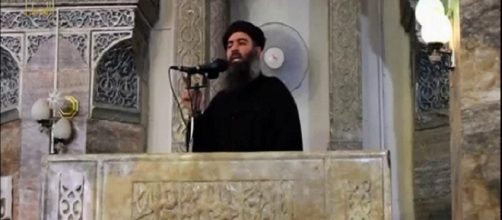The death of the leader was first reported by Iraq's Al Sumaria TV channel. The channel got the information from a source from an Iraq province named Nineveh. The sources claimed that a successor would be named soon. A Syrian human right observatory group also confirmed his death. The death of Abu Bakr was first reported by the Russian defense minister in mid-June last month. ISIS militants, however, did not confirm his death. Abu Bakr was added in 2011 as a wanted terrorist by the U.S; the U.S offered a reward of $25 million for his capture. According to the Daily Mail, he last appeared in a video proclaiming the formation of an Islamic Caliphate at Grand Nuri mosque in Mosul.
Russia claims to kill the leader
Russian foreign minister claimed on May 28 this year that ISIS leader has been killed in an airstrike. He said that the leader was killed by Russian Aerospace Forces while he was at a command post in the City of Raqqa. Russia also claimed that 30 ISIS commanders and more than 300 militants were killed in the airstrike. The US-led military coalition in Iraq and Syria however never confirmed the reports.
Iraqi army has arrived at the “pulpit” of Abu Bakr al-Baghdadi https://t.co/rCRKtiuPbo
— 🌏Sarwar🌐 (@pirsarwarras) 18 January 2017
The life of Abu Bakr al-Baghdadi
Abu Bakr was born on July 28, 1971. He is believed to have been born near Samarra, Iraq. Those who knew him during his teenage years described him as religious, quiet, shy and nonviolent.
He lived in a room in a local mosque in the west of Baghdad for ten years until 2004. He helped form a militant group named Jamaat Jaysh Ahl al-Sunnah wa-l-Jamaah in 2003 after U.S invaded Iraq in 2003. He served as the group's head of sharia committee. The group then joined Mujahideen Shura Council (MSC) in 2006 where Abu Bakr continued to act as the leader of the group's sharia committee.
The MSC later renamed to Islamic State of Iraq (ISI) and became Al-Qaeda's division in Iraq. He was later named as the leader of the group in May 2010. ISI renamed to Islamic State in Iraq and Syria (ISIS) after expanding to Syria in 2013. On June 29, 2014, ISIS announced the formation of a worldwide caliphate and named Abu Bakr as its leader.
During his years as the leader of ISIS, Abu Bakr mostly appeared in videos at a mosque while speaking at a pulpit.
Just watched Abu Bakr Al-Baghdadi's first public appearance. Watch how he ascended the pulpit. He's got a problem with his leg. Injury?
— Mohamed Ghilan (@MohamedGhilan) 6 July 2014
The U.S added Abu Bakr to the most wanted list on October 4, 2011, and offered a reward of U.S$ 10 million. The reward was later increased to $25 million on December 16, 2016. The recent capture of Mosul may have been an indication of ISIS diminishing power and influence within Iraq. On June last month, the Guardian stated that Iraqi forces captured a mosque where Abu Bakr was declared a caliphate three years ago; this appears to be a symbolic moment in the global war with ISIS.
ISIS Leader Abu Bakr Al-Baghdadi Dead https://t.co/Ig4Fh5MIrX
— Abiola Obayomi B. (@abibeo_oba) 11 July 2017


